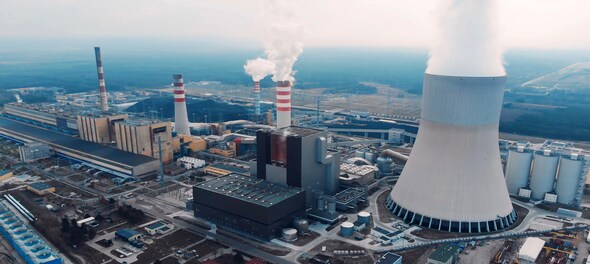
The UK’s grid operator asked three coal-fired power units to be ready to generate on Monday as it boosts electricity supplies during the current cold snap.
It’s the first time this winter National Grid Plc has needed to call on the reserve. The units are warming up and will be ready to generate electricity early Monday if needed. Demand is set to surge during a spell of freezing weather in the UK even as wind speeds drop, curbing supply.
The UK plans to phase out coal next year as it seeks to cut emissions from the power sector. But the government asked coal-fired power producers to keep units available this winter as Europe faces a shortage of natural gas. Using coal means less gas is needed to produce power. The grid operator has also been testing a tool that asks households to cut demand.
Germany's energy fight
Meanwhile, Germany looks set to survive this winter without the Russian gas it used to depend on. The question now is whether it can plug the gap in coming winters, too — and at what price.
Europe’s largest economy hasn’t received Russian deliveries since September but is unlikely to face gas shortages in the coming months — an impressive feat considering that, before the invasion of Ukraine, Germany depended on Moscow for 52 percent of its imports.
Chancellor Olaf Scholz told Bloomberg this week that Germany learned its lesson from being too dependent on Russia. The goal now is to build capacity that gives Germany the chance to have as much gas as it had before the invasion without importing from Russia, he said.
But capacity is only half the battle: without long-term contracts, LNG buyers face fierce competition in international markets. And the amount of LNG available in the world isn’t expected to increase much for at least three years.
The coal dependency
Germany is restoring enough coal to power about 5 million homes, according to Bloomberg estimates.
The nation generates more than a third of its electricity from coal. Energy giant RWE AG, which wants to triple its clean-energy capacity this decade, is still going ahead with plans to extract more lignite from a western mine.
“Germany will have to continue to use coal, with power plants at maximum capacity,” said Klaus-Dieter Borchardt, a senior energy adviser for Baker McKenzie. “There are not so many alternatives to Russian gas.”
Germany's new dependency
Russia’s loss has been a big gain for Norway and the Netherlands, with gas exports from the latter two surging. Yet there already are warnings that the flush times won’t last.
Norway is now Germany’s largest supplier at 33 percent after almost tripling its total natural gas exports last year. Oslo expects flows to remain steady for the next four to five years but then gradually taper as supplies are drained.
Check out our in-depth Market Coverage, Business News & get real-time Stock Market Updates on CNBC-TV18. Also, Watch our channels CNBC-TV18, CNBC Awaaz and CNBC Bajar Live on-the-go!


Lok Sabha Election 2024: Gurugram gears up for crucial polls amidst economic boom and civic woes
Apr 24, 2024 11:41 PM
Lok Sabha Election 2024: Crucial seats up for grabs as Rajasthan, Maharashtra, Bihar gear up for 2nd phase of polls
Apr 24, 2024 11:40 PM

